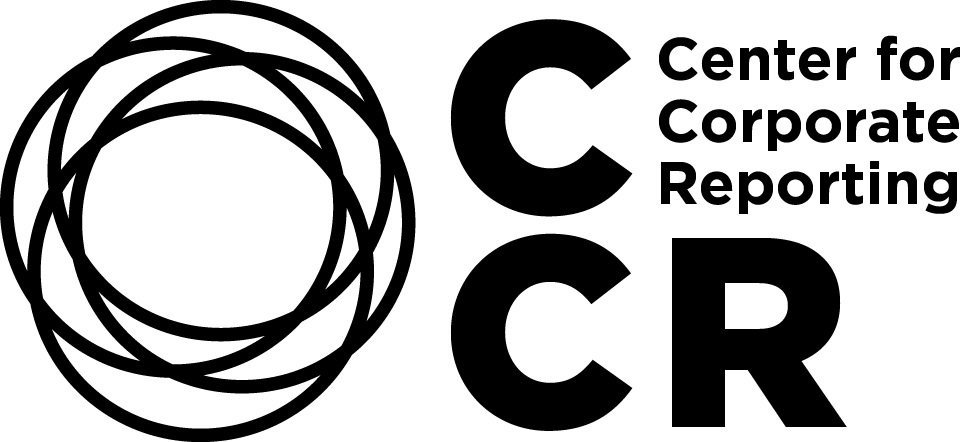originally published in the 22nd issue of “The Reporting Times”
by Robert G. Eccles
Exactly how the acronym of ESG has become the topic of such heated debate will make for a good doctoral dissertation in sociology someday. It has become a term derided on both the left (“it’s not true sustainability”) and the right (“it’s a progressive political agenda”). Putting inflammatory rhetoric aside, it is healthy to have a debate about ESG. What it is and what it isn’t. What it can do and what it can’t do. What it was never intended to do—solve the world’s problems starting with climate change. It is also our view that the term has probably run its full life cycle and it is time to address the underlying issues of what is being debated.
For starters, Dan Crowley, a registered Republican (I am a registered Democrat) and I have argued that it is important to separate material risk disclosures from salient political issues. We can use climate change as an illustrative example. If investors deem how a company is adapting to climate change to be a material issue, then companies should report on it. After receiving a great deal of feedback based on very different views, the SEC will soon be issuing its proposed rule on climate reporting. It is important that this rule simply be about disclosures of a material risk.
In terms of ESG more broadly, Mr. Crowley and I have also argued that “The key will be returning ESG to its original and narrow intention — as a means for helping companies identify and communicate to investors the material long-term risks they face from ESG-related issues.” For this reason we are pleased that the House will be holding Hearings on ESG. This will be a great opportunity to put ESG back in the box where it belongs. No doubt there will be some heated debate, always part of the political process, but we are very encouraged by the “Mandatory Materiality Requirement Act of 2022,” which was introduced by Senator Mike Rounds (R–South Dakota) and seven other senators in September 2022. Companion legislation, H.R.9408 was introduced by Congressmen Bill Huizenga (R-Michigan) and Andy Barr (R-Kentucky) in December 2022. These provide a solid foundation for having this discussion.
I am not naïve. The controversy over ESG will continue until the next U.S. Presidential election in 2024. Since attacking it is core to the platform of some seeking the Republican nomination for President. But it’s important to distinguish between political theater and the political process for addressing society’s problems. Rather than arguing about ESG, its far more constructive to talk about specific issues and do so in a bipartisan way.
This can be illustrated by taking one of the core issues at the heart of the ESG Culture Wars—climate change. The general perception on the left is that Republicans don’t think climate change is a real problem and are simply intent on protecting the fossil fuel industry. While there are certainly examples of this, I do not think it’s the norm.
For example, consider Greg Goff. He is a former oil & gas company CEO and now a board member at ExxonMobil, placed there as a result of the Engine No. 1 campaign. In discussing climate change he stated that “My view is that this is the biggest challenge of my lifetime. In addition to having a sense of urgency, it is important there is very well-developed framework to drive change as we decarbonize.” An analysis of ExxonMobil’s 2022 10-K shows that it includes every material ESG issued identified by the Sustainability Accounting Standards Board (SASB) for the oil & gas exploration and production industry. SASB merged with the International Integrated Reporting Council (IIRC) to form the Value Reporting Foundation and it was acquired by the ISSB and is informing its work from a sector perspective.
Also consider the NGO ClearPath. “ClearPath Founder Jay Faison and Chief Executive Officer Rich Powell are on a mission to tackle one very tangled question: ‘How do we make our energy sector cleaner AND more reliable, while making our economy and country stronger?’” Their policy focus is Clean Energy Pillars, Clean Industrial and Clean Removal Pillar (carbon dioxide removal. Fundamental to all of these pillars is innovation.
Finally, there is the Conservative Climate Caucus (CCC) founded in June 2021 by Rep. John Curtis, a Republican member of the House of Representatives from Utah. He serves as Chair and Rep. Mariannette Miller-Meeks, a Republican from Iowa, serves as Vice Chair. On its website it states its beliefs which include: “The climate is changing, and decades of a global industrial era that has brought prosperity to the world has also contributed to that change” and “Climate change is a global issue and China is the greatest immediate obstacle to reducing world emissions. Solutions should reduce global emissions and not just be ‘feel good’ policies.”
Political theater is entertaining and inevitable. But it doesn’t solve problems confronting all citizens regardless of their political convictions. The way to do this is to quit talking about ESG and start talking about the real issues.
Robert G. Eccles is a retired tenured professor at the Harvard Business School and currently a Visiting Professor of Management Practice at the Said Business School at the University of Oxford.
The Reporting Times
The 22nd issue of our flagship publication The Reporting Times on the main topic «The Paradox of Transparency» was published on May 9, 2023. Read exciting expert articles and interviews!
Finde more information on the 22nd issue here




